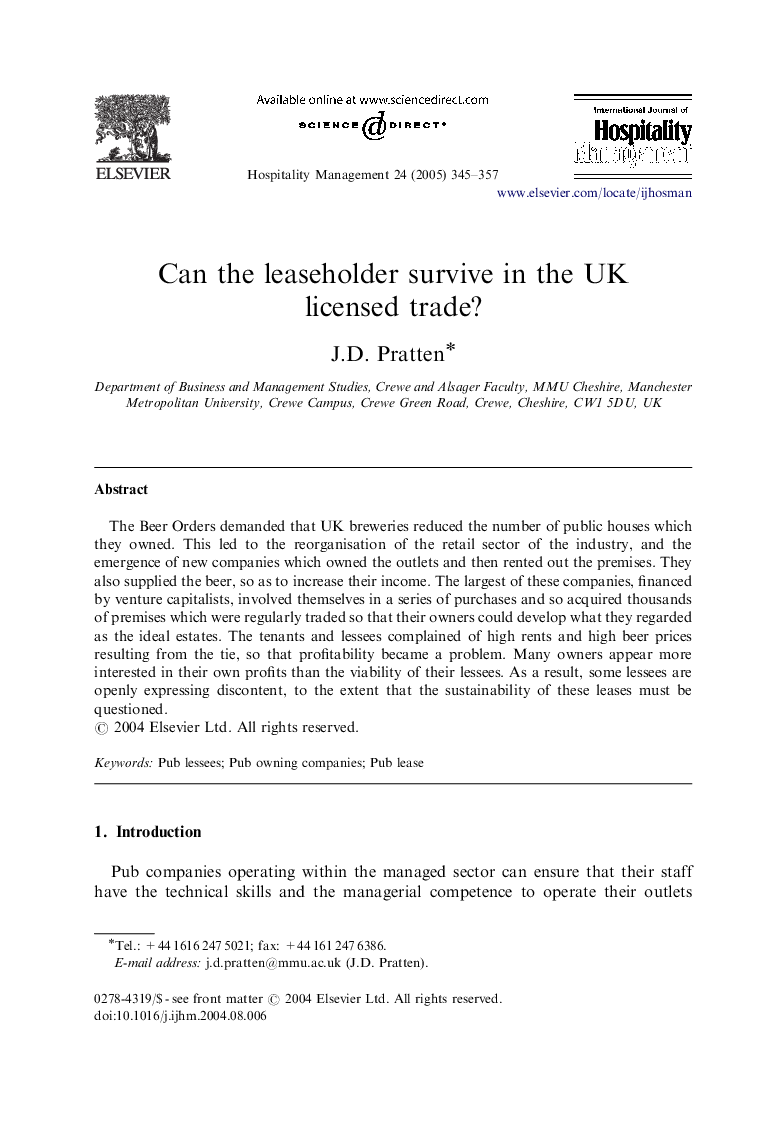| Article ID | Journal | Published Year | Pages | File Type |
|---|---|---|---|---|
| 9734306 | International Journal of Hospitality Management | 2005 | 13 Pages |
Abstract
The Beer Orders demanded that UK breweries reduced the number of public houses which they owned. This led to the reorganisation of the retail sector of the industry, and the emergence of new companies which owned the outlets and then rented out the premises. They also supplied the beer, so as to increase their income. The largest of these companies, financed by venture capitalists, involved themselves in a series of purchases and so acquired thousands of premises which were regularly traded so that their owners could develop what they regarded as the ideal estates. The tenants and lessees complained of high rents and high beer prices resulting from the tie, so that profitability became a problem. Many owners appear more interested in their own profits than the viability of their lessees. As a result, some lessees are openly expressing discontent, to the extent that the sustainability of these leases must be questioned.
Related Topics
Social Sciences and Humanities
Business, Management and Accounting
Strategy and Management
Authors
J.D. Pratten,
